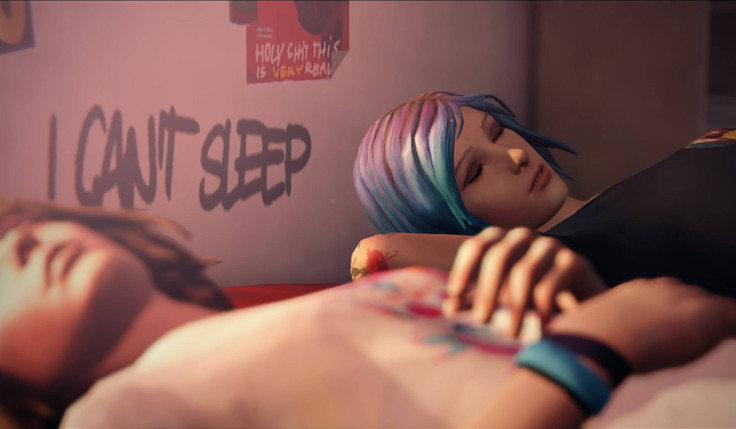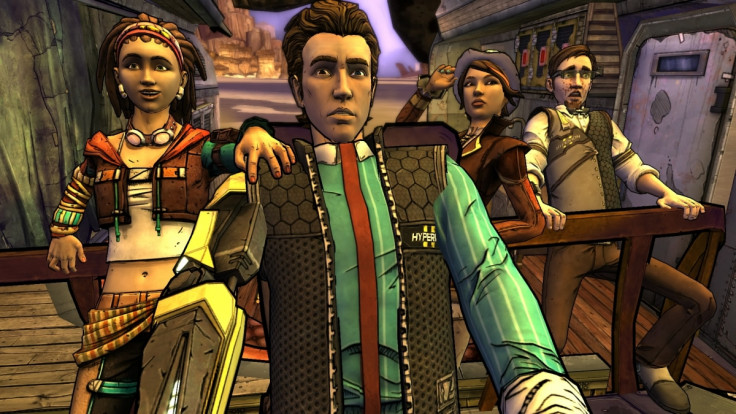Boxsets for gamers: After Life Is Strange, where next for episodic narrative-driven games?

This week sees the release of the final episodes of Tales From The Borderlands and Life Is Strange, two fantastic examples of dialogue, choice and narrative-driven episodic adventure games. Their end leaves just one question for this popular sub-genre: where next?
The crux of these games is that player choices matter more than the lateral thinking required to solve many classic point and click adventures. The formula was refined by Telltale Games in its Walking Dead series, and Tales From The Borderlands is the latest to tread the same boards.
In a sea of po-faced shooters Gearbox's Borderlands always stood out for its comic-book visual style and broad humour, but due to the limitations of first-person shooters it always felt more like window dressing. Telltale's story and character-driven approach is the perfect showcase for the series' dark humour and amoral cast of anti-heroes.
When The Walking Dead was released in 2012, it raised the bar for interactive storytelling. Though it owed a debt to David Cage's Heavy Rain, its focused story and well-crafted characters outshone Cage's bloated, overwrought detective yarn. For all of Cage's talk about emotion in games only being possible with photo-realistic graphics, players were more invested in Telltale's stylised character models.
But for all of Tales' excellent writing and direction, it's still tied to simplistic choose-your-own adventure style gameplay. Enter Life is Strange, Dontnod Entertainment's first stab at the genre, which has taken Telltale's blueprint and twisted it, with protagonist Max Caulfield's time-manipulating powers allowing players to see how their choices will partially play out before deciding which path they'll go down.

Released across 2015, Life is Strange was an entirely new story not based on an existing IP. Telltale's games aren't just based on known properties but also inhabit familiar worlds of zombies, fantasy and sci-fi. Life is Strange's star is unlike most protagonists in games. She is a shy teenage girl discovering her powers and herself over the course of five episodes set in small fishing town Arcadia Bay. The game's focus is a central friendship between Max and Chloe which feels honest and believable – a rare feat even in other mediums.
Life is Strange suggests a bright future for interactive storytelling. Its success is proof that episodic games can stand on their own without appealing to a pre-existing fan base. The idea of a game that's centred on the friendship between two girls would have been unthinkable last year yet it's now a real contender for game of the year. Players and critics alike have been invested in its human drama and believable characters, even though its dialogue gives away that this is being written by people pretending to be teenagers.
Hopefully after seeing Life is Strange's success, more developers will follow Dontnod's lead and start offering their own takes on the format – diversifying in terms of both dramatic genres and play mechanics. Publishers could launch new IPs as playable adventures with a hugely minimised risk. Development budgets and teams can be smaller and the relatively cheap price per episode means players can try something different without going broke.
Telltale's recent Borderlands and Minecraft releases show that they could take established properties and give them a new angle. Capcom's release of Resident Evil: Revelations 2 as an episodic game earlier this year also supports this notion.
The episodic format has something to offer all players and could potentially be very important in convincing new ones to pick up a controller. AAA open world games require a lot of time and investment from the start, costing £50 a pop at launch. That's a lot of money to spend on something a new player may well scratch only the surface of. An episode of Life Is Strange or Telltale's Wolf Among Us meanwhile will take up a single evening and set you back roughly the price of a pint. An impulse purchase that won't break the bank, but still delivers a satisfying and memorable experience.
For all the latest video game news follow us on Twitter @IBTGamesUK.
© Copyright IBTimes 2024. All rights reserved.







